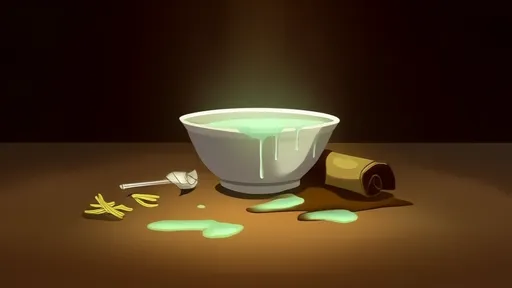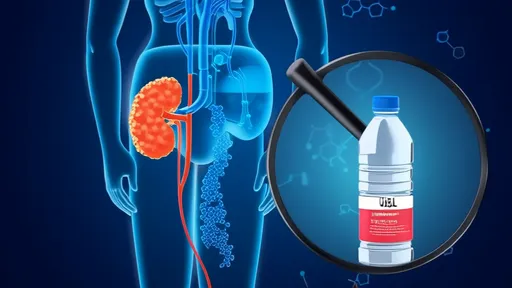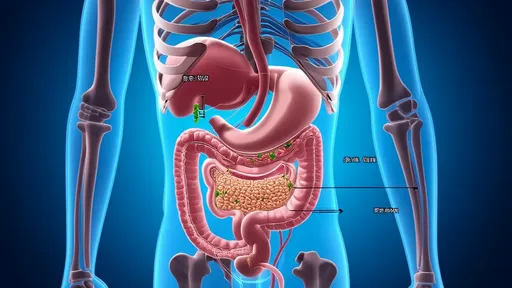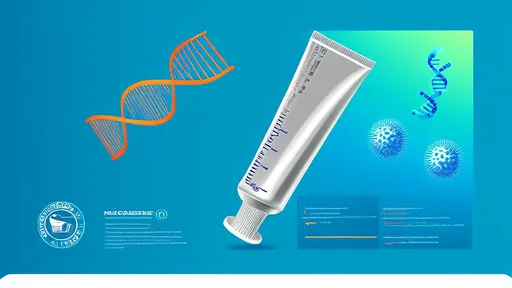For years, bottled mineral water has been marketed as a healthier alternative to tap water, prized for its purity and mineral content. However, a lingering concern among health-conscious consumers is whether long-term consumption of mineral water could contribute to kidney stone formation. The truth lies not in blanket statements, but in understanding one crucial factor that determines risk.
The relationship between mineral water and kidney stones is more nuanced than a simple cause-and-effect scenario. Kidney stones form when certain minerals in urine become highly concentrated, crystallizing into hard deposits. While mineral water does contain these minerals—particularly calcium and magnesium—their presence alone doesn’t automatically spell trouble. The key determinant is the bicarbonate content of the water, a factor often overlooked in public discussions.
Bicarbonate, a natural buffer present in many mineral waters, plays a pivotal role in urinary pH balance. Waters rich in bicarbonate create an alkaline environment in urine, which helps prevent the crystallization of calcium oxalate—the most common type of kidney stone. Conversely, mineral waters with low bicarbonate levels, even if they contain calcium, may not offer this protective effect. This explains why some populations drinking calcium-rich mineral waters have lower kidney stone incidence, while others show increased risk.
Research from urology journals reveals an interesting paradox: certain high-calcium mineral waters actually reduce kidney stone risk when their bicarbonate content exceeds 500 mg/L. The mechanism involves bicarbonate binding with calcium in the digestive tract, preventing excessive calcium absorption while promoting its excretion through feces rather than urine. This dual action maintains calcium balance without overburdening the kidneys.
The magnesium content in mineral water adds another layer of protection. Magnesium acts as a natural inhibitor of crystal formation, competing with calcium for binding sites in urine. Studies show that for every 100 mg increase in daily magnesium intake, kidney stone risk decreases by approximately 30%. Many mineral waters naturally contain this beneficial mineral in bioavailable forms.
Practical recommendations emerge when we examine water composition labels carefully. Ideal mineral waters for stone prevention should have a bicarbonate content above 500 mg/L, calcium levels between 50-150 mg/L, and magnesium exceeding 50 mg/L. Waters meeting these criteria are often labeled "alkaline" or "hydrogen carbonate-rich." Conversely, those with high calcium but low bicarbonate (common in some spring waters) may require moderation for stone-formers.
Hydration patterns matter as much as water composition. Even the best mineral water becomes risky when consumed inadequately. The urological gold standard remains achieving at least 2.5 liters of daily urine output, which typically requires drinking about 3 liters of fluid spread evenly throughout the day. This dilution effect prevents mineral concentration in urine regardless of water type.
Individual risk factors dramatically influence whether mineral water poses any threat. People with a history of calcium oxalate stones, those with acidic urine pH (below 6), or individuals with hypercalciuria (excessive calcium in urine) should be more mindful of their mineral water choices. For them, bicarbonate-rich options are particularly beneficial, while others can enjoy most mineral waters without concern.
The temperature at which mineral water is consumed might surprise many as a relevant factor. Cold mineral water slows stomach emptying, allowing more time for calcium-bicarbonate interaction in the gut. This enhances the protective mechanisms against stone formation compared to drinking room-temperature water rapidly. Such subtle physiological effects underscore why simplistic "good vs bad" classifications of mineral water fail.
Emerging research suggests mineral water's sulfate content deserves attention. While sulfate adds to water's taste profile, excessive amounts (above 250 mg/L) may acidify urine slightly, potentially offsetting some of bicarbonate's benefits. This doesn't mean sulfate-containing waters are dangerous, but stone-formers might balance them with alkaline foods like citrus fruits.
Medical professionals increasingly recognize that banning mineral water for stone prevention is outdated advice. Modern urology guidelines emphasize that the right kind of mineral water can be part of stone prevention strategies. The European Association of Urology specifically notes bicarbonate-rich mineral waters as a consideration for recurrent calcium oxalate stone formers.
Consumer education gaps persist regarding water labels. Many buyers focus solely on calcium numbers without checking bicarbonate levels, potentially missing ideal choices. Regulatory differences also exist—some countries require detailed mineral breakdowns, while others don't. When in doubt, contacting manufacturers for full composition data or consulting a nephrologist for personalized advice proves worthwhile.
The environmental aspect intertwines with health considerations. Single-use plastic bottles, besides ecological concerns, may expose water to phthalates that could theoretically influence stone risk (though evidence remains limited). Glass-bottled mineral waters or high-quality home filtration systems with mineral retention offer sustainable alternatives without sacrificing health benefits.
Historical perspectives reveal an irony—many traditional healing springs praised for centuries for "stone-dissolving" properties turn out to be bicarbonate-rich mineral waters. Modern science now confirms what empirical observation suggested long ago. This convergence of tradition and scientific validation strengthens the case for informed mineral water consumption.
Ultimately, the question isn't whether mineral water causes kidney stones, but rather which type of mineral water suits an individual's physiology and risk profile. With attention to bicarbonate levels, balanced mineral content, and proper hydration habits, most people can enjoy mineral water without fear—and possibly with added kidney health benefits. As with many nutritional matters, the dose and details make the poison or the remedy.

By /Aug 19, 2025

By /Aug 19, 2025

By /Aug 19, 2025

By /Aug 19, 2025

By /Aug 19, 2025

By /Aug 19, 2025

By /Aug 19, 2025

By /Aug 19, 2025

By /Aug 19, 2025

By /Aug 19, 2025

By /Aug 19, 2025

By /Aug 19, 2025

By /Aug 19, 2025

By /Aug 19, 2025

By /Aug 19, 2025

By /Aug 19, 2025

By /Aug 19, 2025

By /Aug 19, 2025

By /Aug 19, 2025

By /Aug 19, 2025